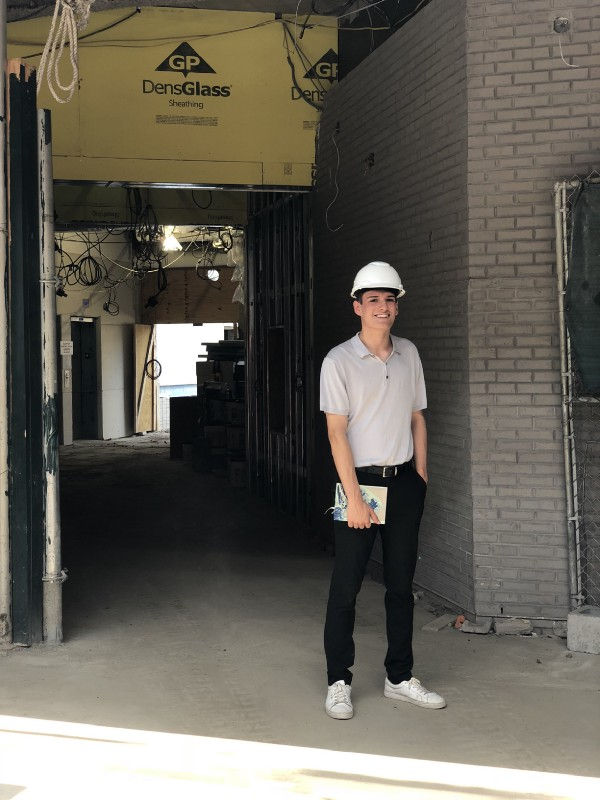Indigent Defense in Eastern Kentucky
- Sep 1, 2016
- 3 min read
By E. Whitten Stone, Elon Law
“You cannot understand a complex people by only looking at data – something inside you has to crack to let in the light so your eyes and brain and heart can adjust properly.” – Silas House
“Wake up to find out that you are the eyes of the world.” – The Grateful Dead
I interned this summer with Kentucky’s Department of Public Advocacy at the London Trial Office located in Laurel County in Eastern Kentucky. I am a 28-year-old lifelong North Carolinian, and while Eastern Kentucky is only a few hours away, the two places seem like different universes. North Carolina certainly has its own poverty—I go to law school in Greensboro, which has one of the most food insecure child populations in the country—but I was not prepared for what I saw and learned.

” I have learned that a good public defense for indigent citizens who do not receive justice in the criminal justice system helps to address what is wrong but remains insufficient,” writes Whitten Stone, 2016 SHECP Intern.
I don’t know what it will take to stop the devastating cycle of poverty in Eastern Kentucky. In many ways, the deck is stacked, and has always been stacked, against the majority of clients whose stories I heard this summer. To say that equal opportunities exist across this country for anyone willing to work hard enough is insulting when you take a close look at the forces working against the people of Eastern Kentucky. I watched and learned from the lawyers who are fighting that good fight every single day—advocating for their clients by asking that their drug addiction be treated rather than punished or asking that their lack of opportunity and education be considered rather than ignored in sentencing. The public defenders in Eastern Kentucky fight incessantly just for their defendants to have a reasonable bond that will allow them to keep or get a job. On some days they make the same arguments over and over: drug court over jail time, home incarceration over a sentence in prison, mandated education for juvenile offenders rather than detention centers. Despite these efforts, the prosecutors and courts continue to mete out ineffective punishments that thwart opportunities for poor citizens. Some lawyers drive as much as four hours on winding highways through the hills just to see their clients in jail or go to court. They do it because they are needed. In some parts of Eastern Kentucky, ninety percent of those accused qualify for indigent defense. The poverty in rural Appalachia, although nothing new, is grinding and devastating.
Some say that criminal defense in Kentucky is public defense. I saw that to be true on my first day of the internship in a courthouse on a hill next to Lawyer Street in Manchester, Kentucky. Manchester’s tragically ironic slogan is “The City of Hope.” I was not educated about white, rural poverty before coming to Kentucky. I knew that coal was all but gone; I knew that meth was bad; but I didn’t realize that there were parts of the country where fifty percent of a county’s population had lost six or more teeth. The health statistics are shocking. In a 2014 New York Times article, “What’s the Matter with Eastern Kentucky?” researchers considering every county in the country to determine which were the best and worst for longevity and happiness found that Clay County, KY, the “land of storybook hills and drawls,” ranked dead last. In Manchester, “The City of Hope,” located in Clay County, the average lifespan is six years less than the national average.
I do not have an adequate answer to the question posed by the New York Times, but I’ve thought about it along every long county road, every hot jail cell, and every quiet courtroom between Harlan and Laurel counties. The lack of jobs, prevalence of destructive opiate and methamphetamine addiction, and lack of educational and healthcare opportunities are apparent in the tableaux of beauty and decay of Eastern Kentucky. But there is more—something more foreign to my mind and harder to articulate. I have learned that a good public defense for indigent citizens who do not receive justice in the criminal justice system helps to address what is wrong but remains insufficient.
Thankfully, Eastern Kentucky’s criminal justice system is blessed with brilliant and hardworking public defenders. They are necessary and enable hope. They cannot solve all of Eastern Kentucky’s problems, but in their advocacy for their clients, the public defenders encourage them and give them some space to rise above the system that has kept them in gripping poverty. Eastern Kentucky is not beyond repair. If other institutions could rise to the challenge the way Kentucky’s Department of Public Advocacy has, I think Eastern Kentucky could find the hope the city of Manchester publicizes.



